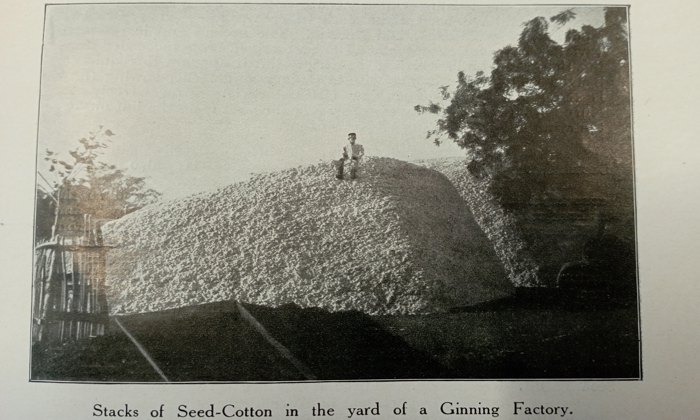Examining the ecological legacy of Britain’s cotton empire
17 Feb 2022
'Cottonopolis: lessons for environmental science through the hidden histories of Manchester' will be a co-collaboration between our Schools, disciplines and partners

Working with various Manchester-based institutions engaged in climate science, Cottonopolis seeks to unravel the socio-environmental legacies of industrial cotton production in Manchester.
The project will examine the global impacts this legacy created on scientific knowledge and deliver talks and workshops and a public digital archive to share key findings with community groups.
Alongside, it aims to re-cast the future of environmental sciences in Britain and beyond. The project has been awarded funding from the Arts and Humanities Research Council (AHRC) and the Natural Environment Research Council (NERC) to understand how the future of modern environmental science can be informed by the past.
The project is a fantastic example of cross-disciplinary research - it is being led by Dr Aditya Ramesh from the Department of History, and co-led by Dr Ali Browne from the School of Environment, Education and Development and Professor Chris Jackson from the School of Natural Sciences. Other members of the core group include Dr Polyanna Bispo, Dr Jenna Ashton and Dr Mark Usher. Other colleagues from the Faculties of Humanities and Science and Engineering have come together to form a 'Cottonopolis Collective'.
Project partners include the British Geological Survey, The Geological Society of London, Manchester Geographical Society, Royal Geographical Society and our John Rylands Research Institute and Library.
Dr Ali Browne says: "The city of Manchester is intrinsically linked to the history of the cotton industry, and we hope to identify trajectories of environmental changes locally and globally and social transformation during the late 19th and early 20th centuries.
"The personal stories and connections to the cotton industry and Manchester, both historic and contemporary, of our local communities will give us an invaluable insight into the wider social and historical context of environmental science and show how interdisciplinary projects can inform our understanding of the environment within which we all live."
IMAGE: 'Stacks of seed cotton' in southern India. Report by Arno Schmidt, Secretary of the International Federation of Master Cotton Spinners' and Manufacturers Associations 1912, John Rylands Library (Special Collections).
